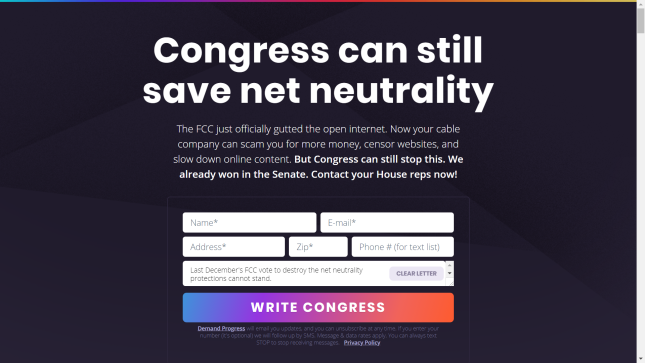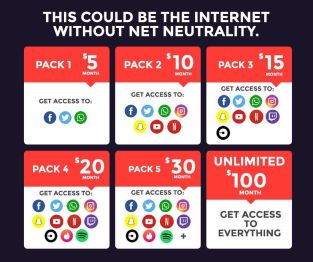
This week’s post is about something that I wanted to address earlier, but unfortunately it had to be put on hold as I was busy covering E3, among other things. Regardless, I wanted to talk about it now, in hopes of letting at least some people know who may have not heard about an update on the whole net neutrality situation. Remember net neutrality? The thing that it seems like the whole Internet was talking about some months ago, turned now into what seems like an afterthought? Well, net neutrality is still extremely important for many reasons. Today, I wanted to run through some recent happenings and what they could mean for the daily Internet user.
*Note: Used NY Times and The Verge articles for reference*
We officially “lost” on June 11th, 2018

This means that technically ISP’s could control Internet speeds per service and that ISP’s could even censor or block sites themselves. The Internet is no longer an even playing field, or at least it doesn’t have to be as there are no laws protecting it.
Is the Internet doomed today, then?
Well, no, not exactly. As you have experienced, the Internet didn’t drastically change after June 11th, and it won’t be drastically different anytime soon. It takes time for the business world to move and act on these new rules (or lack thereof) on how they can run their Internet and subscription services.
What’s the worst that can happen?
I remember watching a video from The Verge (above) shortly after the decision to repeal Net Neutrality had been made, talking about how ISP’s are kind of already in the process of bundling extra services onto their Internet service. For example, Sprint customers get access to a Hulu subscription for no additional charge. Verizon customers get a competing service, Go90, which, ironically, announced its closure on the day of writing this blog post. T-Mobile customers get Netflix through a special offer, and AT&T has some deal bundle deal with their DIRECTV service. But, you get the point: ISP’s bundle extra services onto their Internet service. Here’s the kick, though: Now ISP’s can throttle speeds per service. So, if you are Sprint customer and want to watch Netflix, (or any other smaller, competing service, for that matter), in the future, Sprint can give you a lower Internet speed when watching Netflix (more buffering, lower resolution video, etc.) to encourage you to use Hulu instead. Now, no ISP’s have actually gone through and done this, but they can if they wanted to, and the thought of that is scary for the consumer, to say the least.
Is the fight over?

To put it simply, no. If you are unhappy with the decision, you can use the power of your vote to vote-out your representative in Congress if he or she didn’t stand with you in trying to protect net neutrality. But, even before that, you can actually contact your own state’s respective congress and urge them to enact their own net neutrality rules. Or, you can contact your state’s governor to pass an executive order protecting net neutrality rules within your respective state. Some states have already enacted such laws. For an official list, check out this resource that I found through the NY Times article referenced earlier. As far as my state of residence goes, Ohio hasn’t done anything really to in response to the recent developments. It is not one of the states suing (on the basis of no net neutrality being unfair and unconstitutional) and it is not one of the states enacting their own net neutrality laws just yet. I hope that my state makes some motion to protect net neutrality measures, or I will have to urge my representatives again to move to act. I urge you all to do the same with your respective government officials.